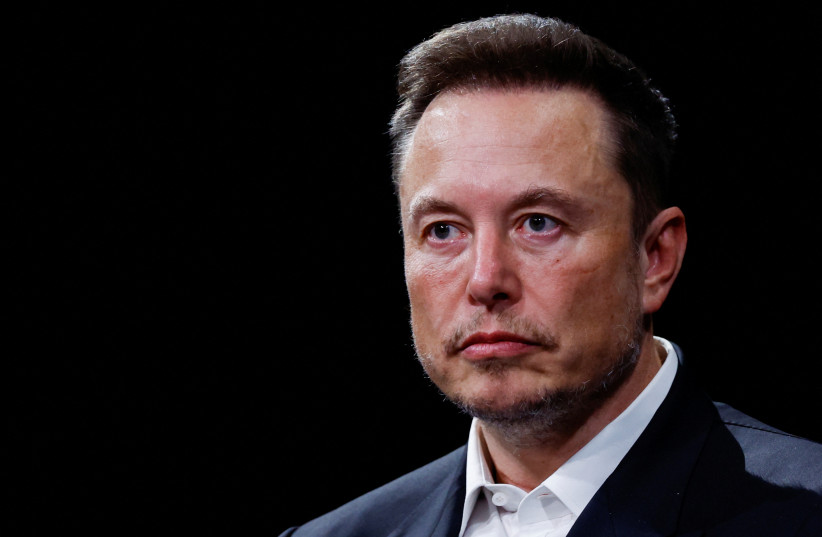In the intricate world of diplomacy, words often carry more weight than actions. It’s a delicate dance, where a well-placed statement can be more influential than an overt critique.
Prime Minister Benjamin Netanyahu displayed his diplomatic finesse – while under intense criticism back home for his government’s judicial reform legislation push – during a meeting with billionaire Elon Musk at the Tesla offices in San José, California. While the meeting was rife with important discussions on various matters, one topic stood out: antisemitism.
Addressing this sensitive issue in a public forum is no small feat, especially when it involves a personality as polarizing as Musk. Netanyahu chose his words carefully, avoiding direct criticism and focusing on the importance of condemnation without compromising freedom of speech, particularly under the umbrella of the first amendment.
In a live broadcast watched by a global audience, Netanyahu praised Musk for his purported stance against antisemitism: “I hope you find within the confines of the First Amendment a way to combat antisemitism. I know you’re committed to it. I think it’s important to condemn. The issue of condemnation is separate from the issue of access.” This is an artful balance of appreciation and expectation, showcasing Netanyahu’s ability to tread lightly on a sensitive topic.
Musk, known for his unfiltered and often provocative statements, responded thoughtfully: “Obviously, I’m against antisemitism. Free speech does mean at times someone is saying something you don’t like. That doesn’t mean negativity should be pushed on people. Our overarching goal is to maximize unregretted user time. We can’t police [antisemitism] ahead of time. We’re not going to promote hate speech.” This response was a testament to a complex nature of free speech, highlighting the challenge of balancing it with the responsibility to curb hatred.
Netanyahu’s diplomatic approach was no surprise, given his extensive experience on the world stage. As a prominent Jewish leader, he had a genuine concern for the rise of antisemitism but also had other pressing matters to address, including economic ties and Musk’s support on various issues. It was tempting for him to sidestep Musk’s appeal to do more to combat antisemitism, especially considering that some of Musk’s critics on this front hail from liberal Jewish groups like the Anti-Defamation League, who are not typically aligned with Netanyahu’s political views.

This intriguing encounter may have resonated with Netanyahu, perhaps reminiscent of his earlier days as a young Israeli diplomat serving as the Israeli ambassador to the UN. As he continues his visit, one can only hope that he engages in open dialogues with American Jews to understand their concerns and fears regarding the current Israeli government.
Musk defended by some Israeli officials
It’s important to note that Musk has faced accusations of antisemitism from the Israeli government and several media outlets due to his dissemination of George Soros conspiracy theories. However, not everyone in Israeli officialdom condemns him, as Diaspora Affairs Minister Amichai Chikli has offered in a defense.
In their discussion, Musk emphasized the complex nature of free speech, an issue that transcends borders and ideologies. He reiterated, “Free speech does, at times, mean someone you don’t like is saying something you don’t like... We want to maximize unregretted user time,” underlining the need for a balanced approach to this fundamental democratic principle.
Netanyahu, in closing, took a lighter turn in the conversation, revealing a personal connection with Musk. He shared that he had attended Hebrew schools as a child in South Africa and could even sing “a great ‘Hava Nagila,’” a Jewish folk song. This moment of shared culture likely added a touch of warmth to an otherwise complex and high-stakes discussion.
In the world of diplomacy, every word matters. Netanyahu’s adept handling of the topic of antisemitism during his meeting with Musk demonstrates his skill as a seasoned diplomat and his ability to engage in critical discussions while preserving the broader diplomatic context. The true impact of this encounter may only become evident as these two influential figures continue to navigate the complex terrain of global politics and societal responsibility.
